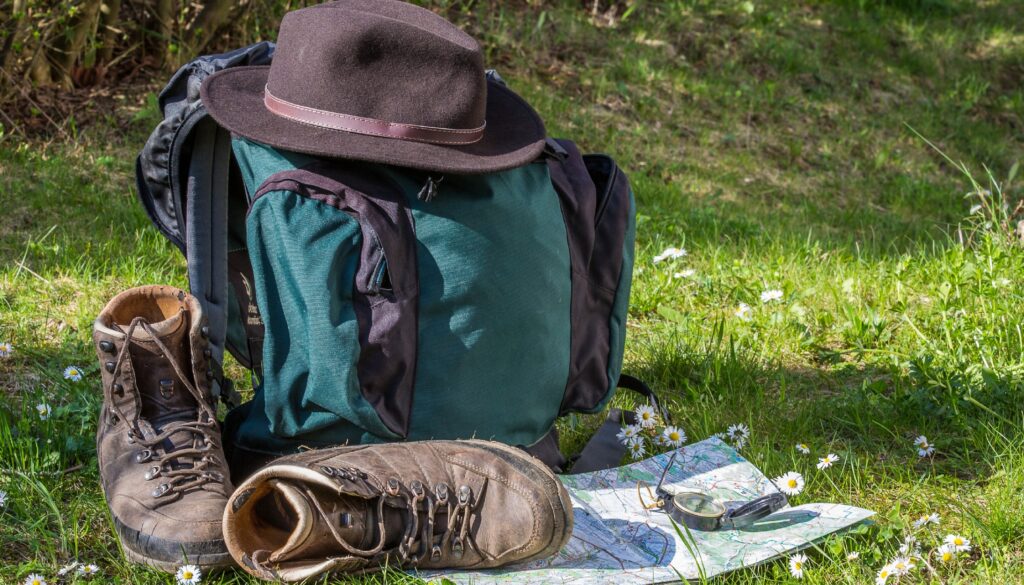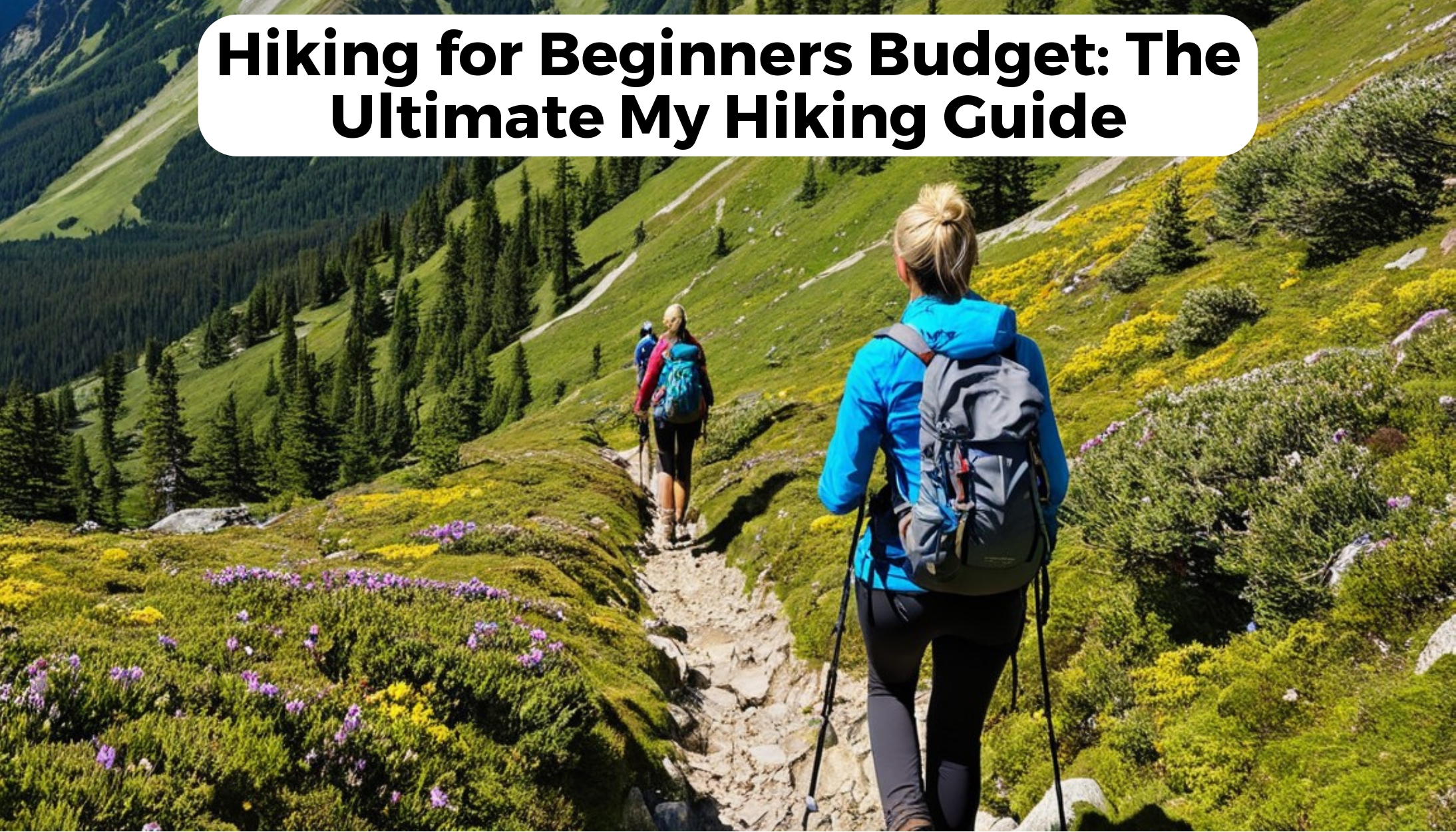Hiking for Beginners Budget
Hiking is one of the most enjoyable hobbies that people can embrace. Many individuals fall in love with hiking as they discover the beauty of nature and the satisfaction of exploring new trails.
However, for beginners, the world of hiking can be overwhelming. With numerous items related to hiking available, it’s easy to feel confused about what is truly essential for a successful hiking experience.

New hikers often find themselves uncertain about what gear is necessary, which leads to overspending and breaking their budget.
If you are a new hiker embarking on your hiking journey and feeling perplexed by the requirements, you have come to the right place.
This article aims to guide beginner hikers on how to start their hiking adventures without straining their wallets.
What is Hiking and Why Should I Do It?
Hiking is a form of outdoor recreation that involves walking on trails or paths, often in scenic environments like forests, mountains, and parks.
It’s an excellent way to experience nature, improve physical health, and relieve stress. The benefits of hiking are numerous, including enhanced cardiovascular fitness, stronger muscles, improved balance, and a boost in mental well-being.
For beginners, hiking offers a low-cost way to connect with the outdoors, discover new landscapes, and enjoy the serenity of nature without the need for expensive memberships or equipment.
Here is a complete Blog post why do people like hiking?
Hiking as a Beginner: Budget-Friendly Options
When it comes to hiking, you may be wondering if it is a low-budget or high-budget activity.
The good news is that hiking can be both! While there are luxurious hiking experiences and high-end gear available, it is entirely possible to hike without breaking the bank.
Many beautiful trails are free to access, and with the right approach, you can enjoy hiking on a budget.
Hiking Gear Beginner Hikers Need
Jumping into the world of hiking can be overwhelming due to the countless gear brands, items to buy, and recommendations available.
However, getting started as a beginner hiker doesn’t need to be complicated or expensive. Here’s a list of the absolute must-have gear that all beginner hikers should consider before their first hikes:
- Sturdy Shoes: Invest in a good pair of hiking shoes or boots that provide support and grip. They don’t have to be the most expensive options—many affordable brands offer great durability and comfort.
- Comfortable Clothing: Wear moisture-wicking and breathable clothing to keep you comfortable on the trail. Avoid cotton, as it can trap moisture and lead to discomfort.
- Backpack: A small, lightweight backpack is essential for carrying your gear. Look for one that fits comfortably and has enough space for your essentials.
- Food & Water: Pack sufficient snacks and water to keep your energy levels up. Hydration is crucial during hikes, so consider using a water bottle or hydration bladder.
- Safety/Emergency Items: Bring a basic first aid kit, a whistle, a flashlight, and a multi-tool. These items can be invaluable in case of emergencies.
- Navigation Tools: A map and compass or a GPS device can help you stay oriented on your hike. Familiarize yourself with the trail before you head out.
- Sun Protection: Use sunscreen, sunglasses, and a hat to protect yourself from the sun’s harmful rays while hiking.
- Camera: Capture the beautiful moments of your hiking adventures. A simple smartphone camera can do the trick, but if you’re into photography, consider a compact camera.
Beginner Preparations for a Hike
Now that you have all your affordable hiking gear, you’re ready to start preparing for your hike! Preparing is fairly easy as long as you’re aware of how to do it.
1. Choose the Right Trail
As a beginner, it’s crucial to select a trail that suits your skill level. Aim for a hike that is under three miles in length and has an elevation gain of less than 1,000 feet. These types of trails are excellent choices for first-time hikers. Choosing a trail that is too difficult can lead to exhaustion or frustration, potentially discouraging you from continuing your hiking journey.
2. Know Your Stuff
Before heading out, do some research on the area where your chosen trail is located. While you don’t need to be an expert, having basic knowledge of the trail conditions, any necessary permits, expected crowds at the trailhead, the trail’s terrain, weather forecasts, and local wildlife is essential. Websites like All Trails and official state/national park pages can provide valuable information.
3. Pack Your Bag
Give yourself plenty of time to pack your hiking bag to ensure you don’t forget anything crucial. The basic principle of packing for a day hike is to place heavier items near the center of your back for better weight distribution. Avoid carrying unnecessary items and keep safety essentials easily accessible.
4. Wear the Proper Clothing
Always check the weather forecast before heading out to ensure you wear appropriate clothing for the conditions. Whether it’s a raincoat, snow pants, or a sun hat, being prepared for various weather scenarios will help you stay comfortable on the trail. The saying “better to be safe than sorry” rings true in outdoor activities.
5. Have a Safety Plan in Place
Even if you’re planning a short hike or one that’s close to home, having a safety plan is vital. Inform a trusted friend or family member of your hiking plans, including the trail you’ll be on and your anticipated return time. Apps like Cairn allow you to share your route and real-time location with others, giving you added peace of mind.
Tips for Hiking for Beginners on a Budget
Embarking on your hiking journey can be both exciting and challenging, especially as a beginner trying to stick to a budget. Here are some additional tips to help you make the most of your hiking experience without overspending:
1. Borrow or Rent Gear
Before investing in expensive hiking gear, consider borrowing items from friends or renting from local outdoor shops. This way, you can test various equipment without a significant upfront investment.
2. Plan Local Hikes
Explore local trails that don’t require expensive travel or accommodation. Many communities have beautiful parks and nature reserves that offer free or low-cost hiking opportunities.
3. Use Free Resources
Take advantage of free resources available online, such as hiking blogs, YouTube channels, and social media groups, to learn about hiking techniques, gear reviews, and trail recommendations.
4. Join a Hiking Group
Consider joining a local hiking group or club. These organizations often plan regular hikes and provide a wealth of knowledge about the best trails, safety tips, and budget-friendly gear.
5. Pack Your Food
Instead of buying food on the go, pack your meals and snacks. Preparing your food not only saves money but also allows you to control what you eat while on the trail.
6. Stay Flexible
Be open to changing your plans based on weather conditions or personal preferences. Sometimes, the best hiking experiences come from spontaneous adventures, so embrace flexibility in your journey.
Conclusion
Hiking is a rewarding and budget-friendly hobby that allows beginners to explore nature while staying active. By understanding the essentials of hiking gear, proper preparation, and budgeting, you can embark on your hiking journey with confidence and excitement.
Remember, you don’t need to spend a fortune to enjoy hiking. With the right mindset, a bit of research, and some basic gear, you can create memorable experiences in the great outdoors. So lace up your sturdy shoes, pack your backpack, and hit the trails hiking for beginners on a budget is not only possible, but it’s also incredibly fulfilling. Happy hiking!
If this Blog Post Helps you share with your friends follow us for more hiking Guide and Tips also on social media to get updates Thank you for visiting – myhikingguide.com
F&Q About Hiking for Beginners Budget
How to Hike on a Budget?
Start by exploring local trails to avoid travel expenses. Borrow or rent gear, pack your own food, and use budget-friendly or secondhand equipment. Prioritize lightweight essentials without overspending.
What Hiking Gear to Buy First?
Begin with sturdy hiking boots for foot protection and comfort. Invest in a quality backpack for carrying essentials Gear and weather-appropriate clothing like a rain jacket.
How to Start Hiking as a Hobby?
Start with easy, well-marked trails and gradually progress to more challenging ones. Research trails, learn basic navigation, and join hiking groups to gain experience. Always pack essentials like water, snacks, and a first-aid kit.
Is Hiking Enough Exercise?
Yes, hiking provides a full-body workout, improving cardiovascular health, strength, and endurance. The intensity depends on the terrain, pace, and duration, making it adaptable to various fitness levels.

